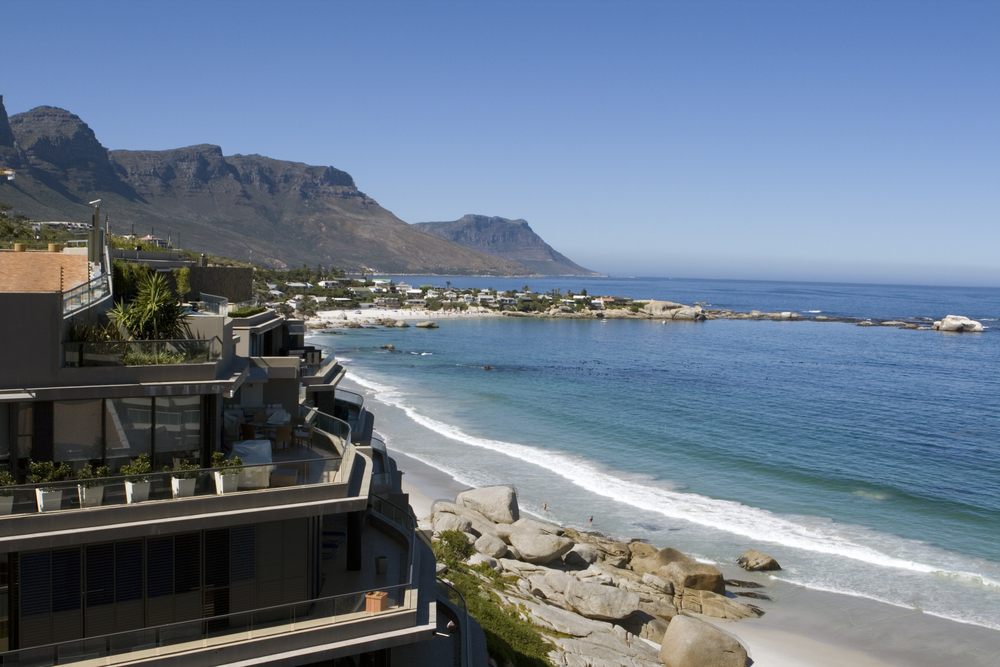The City of Cape Town has rejected the findings of an independent water testing initiative, Project Blue, which raised significant concerns about the safety of water at some of the city’s most popular beaches. Between November 4 and December 6, 2024, Project Blue conducted extensive tests that revealed troubling results, with nearly 40% of sampled beaches showing elevated levels of E. coli and Enterococci—bacteria that are commonly used as indicators of water contamination.
Despite these findings, City officials have maintained that all 146 water samples collected from Cape Town’s sought-after beaches during the festive season met the standards for “excellent water quality.” This stark contrast between the Project Blue report and the City’s official stance has sparked growing concerns among residents and beachgoers about the accuracy and reliability of the City’s water quality assurances.
Project Blue’s testing highlighted especially high bacterial counts at well-known Blue Flag beaches, including Camps Bay, Clifton 4th, and Saunders Rock. On one occasion, water samples from Camps Bay revealed Enterococci levels of over 2,419 cfu/100ml, far surpassing safety limits. Tests from other locations, such as the Soet River mouth in Strand, also revealed significant contamination. Notably, 42% of sampling dates in Table Bay exceeded safe levels for both E. coli and Enterococci, raising alarms about the true state of water quality at these popular coastal spots.
Professor Anthony Turton, a water quality expert who verified the findings, criticized the City’s testing methods as “inadequate and misleading.” According to Turton, the City’s sampling protocol does not meet scientific standards, calling into question the conclusion that Cape Town’s beaches are safe for swimming. “It is erroneous to conclude that the beaches are safe to swim in,” he said, casting doubt on the City’s assertions.
Caroline Marx, director of the environmental organization RethinktheStink, which led the Project Blue initiative, expressed concern over the lack of transparency in the City’s water safety protocols. She pointed out that despite the contamination found at several beaches, no warning signs were placed at these locations, potentially putting public health at risk. Marx’s concerns were echoed by others who questioned the City’s handling of water safety, particularly in light of the findings from independent tests.
In response, the City of Cape Town defended its water quality standards. A statement issued by the City emphasized that all 297 water samples taken at designated swimming areas across the city’s most popular beaches during the festive season were within the required recreational use thresholds. The City also highlighted that all 146 samples collected from its most frequently visited beaches were deemed to have “excellent water quality.” To further ensure transparency, the City noted that it had been posting weekly water quality updates on its website throughout the festive period.
The City also addressed the specific findings from Project Blue, particularly with respect to Camps Bay. It pointed out that over the past 12 months, 371 water samples from four locations at Camps Bay beach showed consistently high water quality, with 100% of the most recent 10 samples meeting the recreational guidelines. The City acknowledged that one sample from December 6 returned an above-guideline Enterococci result, but insisted that the majority of tests did not indicate any water safety concerns.
Regarding Clifton 4th Beach, the City explained that although Project Blue’s testing dates differed from their own, 100% of independently analysed samples for December and January were within safe limits. The City assured the public that it actively responds to pollution incidents when they are identified. “Where specific pollution incidents are detected, we act swiftly to address the source, install warning signs, and continue monitoring until the water quality is deemed safe for public use,” said Eddie Andrews, the City’s Mayco member for spatial planning and environment.
Additionally, the City noted that at locations such as the Soet River mouth and Lagoon Beach—areas known for chronic pollution—the City had closed the coastal waters to public use in response to the findings. These proactive measures demonstrate the City’s commitment to safeguarding public health and addressing pollution at known problem areas.
The debate over water quality at Cape Town’s beaches underscores the challenges in balancing public health, transparency, and scientific testing. With both independent organizations and the City presenting conflicting views on water safety, it remains to be seen how these differing assessments will impact the trust of residents and tourists in the City’s water management practices going forward.
